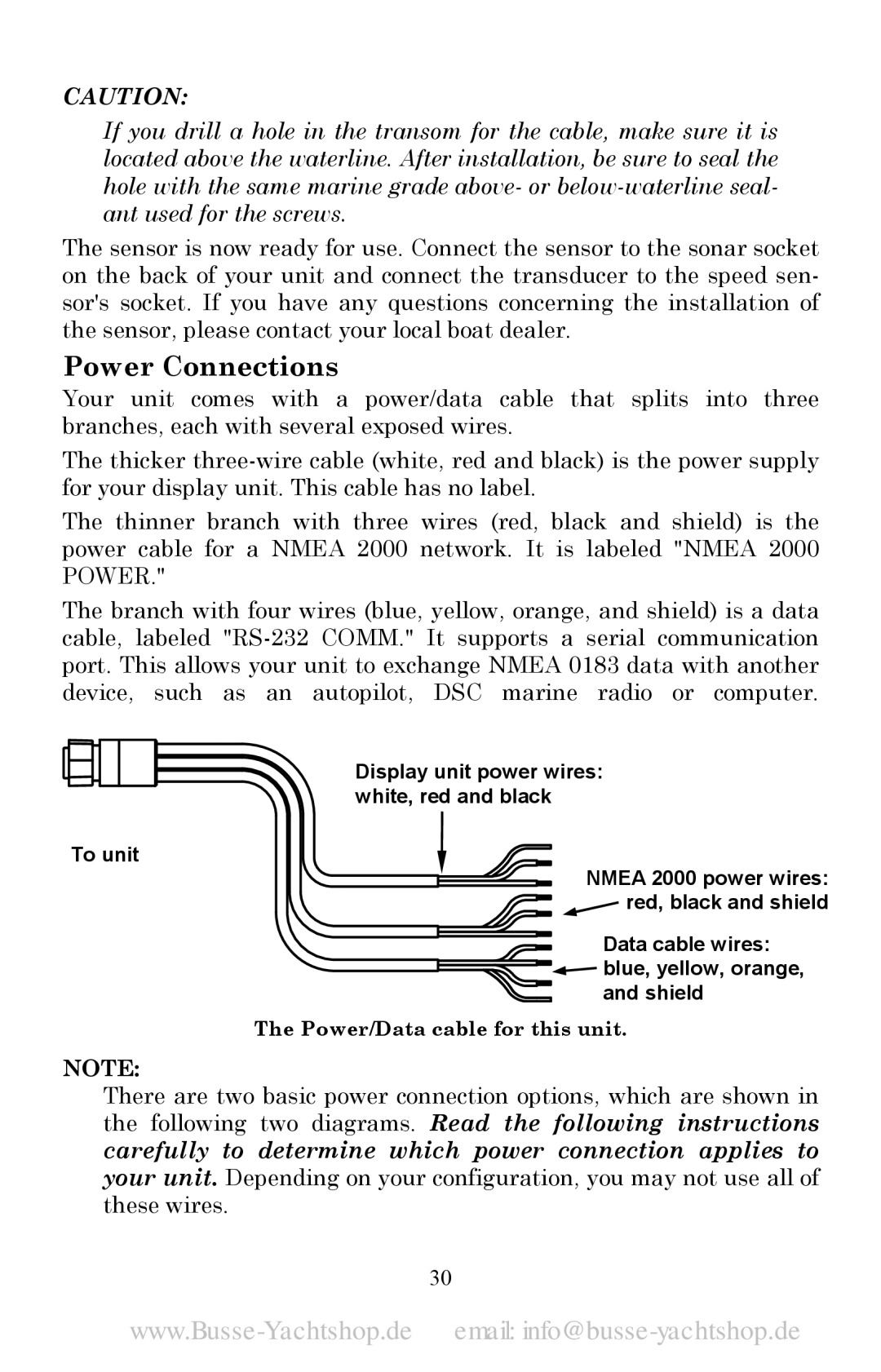
CAUTION:
If you drill a hole in the transom for the cable, make sure it is located above the waterline. After installation, be sure to seal the hole with the same marine grade above- or
The sensor is now ready for use. Connect the sensor to the sonar socket on the back of your unit and connect the transducer to the speed sen- sor's socket. If you have any questions concerning the installation of the sensor, please contact your local boat dealer.
Power Connections
Your unit comes with a power/data cable that splits into three branches, each with several exposed wires.
The thicker
The thinner branch with three wires (red, black and shield) is the power cable for a NMEA 2000 network. It is labeled "NMEA 2000 POWER."
The branch with four wires (blue, yellow, orange, and shield) is a data cable, labeled
Display unit power wires: white, red and black
To unit
NMEA 2000 power wires: ![]() red, black and shield
red, black and shield
Data cable wires: ![]() blue, yellow, orange,
blue, yellow, orange,
and shield
The Power/Data cable for this unit.
NOTE:
There are two basic power connection options, which are shown in the following two diagrams. Read the following instructions carefully to determine which power connection applies to your unit. Depending on your configuration, you may not use all of these wires.
30
